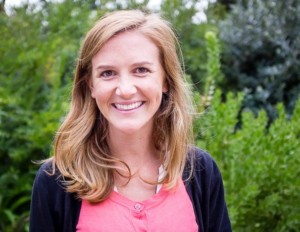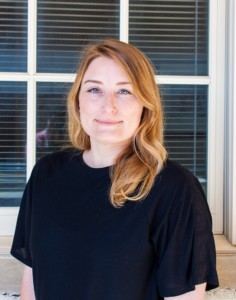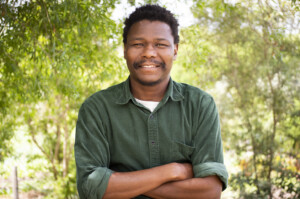CST senior researchers, Dr. Maike Hamann, Dr. Hayley Clements, and research associate Dr. Odirilwe Selomane, have been awarded Y1 ratings in the “Promising Young Researchers” category by the National Research Foundation (NRF) in South Africa.
This recognition is based on the quality and impact of their research outputs, as evaluated by local and international peers. The Y rating specifically pertains to researchers who are 40 years or younger and have held their doctorate or equivalent qualification for less than five years. Individuals who are awarded Y1 ratings are recognised by all or the overriding majority of reviewers as having the potential to establish themselves as a researcher of considerable international standing on the basis of the quality and impact of their recent research outputs.
The NRF rating system is an important tool for benchmarking the quality of South African researchers against the best in the world and is part of the NRF’s mission to build a globally competitive science system in South Africa.
 Dr. Hayley Clements is an interdisciplinary conservation scientist who is interested in applying social-ecological systems thinking to identify resilient and equitable conservation opportunities in a changing world. Her PhD at the University of Cape Town assessed the social-ecological drivers of private land conservation in South Africa. She then undertook postdocs researching protected area effectiveness at Monash University (Australia) and resilience indicators at the CST. Hayley is now leading a project entitled “Quantifying the biodiversity planetary boundary for Africa”, funded by a Jennifer Ward Oppenheimer Research Grant. She also runs a research program focused on unlocking sustainable and equitable wildlife economies across Africa.
Dr. Hayley Clements is an interdisciplinary conservation scientist who is interested in applying social-ecological systems thinking to identify resilient and equitable conservation opportunities in a changing world. Her PhD at the University of Cape Town assessed the social-ecological drivers of private land conservation in South Africa. She then undertook postdocs researching protected area effectiveness at Monash University (Australia) and resilience indicators at the CST. Hayley is now leading a project entitled “Quantifying the biodiversity planetary boundary for Africa”, funded by a Jennifer Ward Oppenheimer Research Grant. She also runs a research program focused on unlocking sustainable and equitable wildlife economies across Africa.

Before joining the CST, Maike completed a PhD in Sustainability Science at the Stockholm Resilience Centre in Sweden, and worked as a postdoctoral researcher with the Natural Capital Project at the University of Minnesota in the United States. Maike uses a social-ecological systems lens to understand how nature contributes to and enhances human well-being, and has a particular interest in the impact of socio-economic inequalities on people-nature relationships. She is a Knowledge & Evidence Lead for the Global Resilience Partnership (GRP), coordinates the Southern African Resilience Academy for the GRP, and works on a Formas-funded project that examines the role of inequality in the palm oil and fishing industries. In addition, Maike has extensive expertise in applying creative futuring methods to explore transformations towards more just and sustainable futures.

Odirilwe is a sustainability researcher interested in interactions between social and ecological systems. He completed a PhD in Conservation Ecology at Stellenbosch University, and went on to do postdoctoral research at the Stockholm Resilience Centre in Sweden. Odirilwe is particularly interested in efforts to track and monitor progress towards sustainability and how understanding of complex systems can help design better monitoring systems. He leads the South African component of two projects focusing on (a) developing a strong environmental sustainability index for South Africa in collaboration with partners in Colombia and United Kingdom, and (a) developing pathways for sustainable land use and food systems as part of the Food, Agriculture, Biodiversity, Land-Use and Energy (FABLE) consortium – a 20 country consortium. He is a coordinating lead author in the ongoing Nexus Assessment of the Intergovernmental Science-Policy Platform on Biodiversity and Ecosystem Services (IPBES) and was until recently the director of the Programme on Ecosystem Change and Society.
“We are incredibly proud of Dr. Hamann, Dr. Clements, and Dr. Selomane for achieving Y1 ratings in the Promising Young Researchers category from the NRF. This recognition is a testament to their hard work, dedication, and the impact of their research. At the CST, we strive to foster an environment that encourages excellence and innovation, and these ratings are a clear indication that we are succeeding in that goal.” – Prof Oonsie Biggs, Co-director of the CST.

